To escape from the frame
1 Impressionism

Impression: soeil levant, Monet (1872)
Trying to remember how I wrote this in a past life, I can't help but underline the importance of being in the right place on the exact moment magic was happening. Impression: soleil levant, Monet, 1872-73.
It's with this painting that the term Impressionism becomes a movement that will group a series of veteran authors possibly disoriented or still looking for the convincing theory that would put them on the route for a new era.
That painting (whether it had that intention or not) is a declaration of principles of what this aesthetics would be about.
The effect light creates while it lands upon the objects for just a second, the visual printed mark, as if from a stamp. The snapshot that lasts until a cloud passes by or a breath of air, and deformes it. Hence its fragility, its weak appearance as if it will crash or break from one moment to another.
It's a recreation on delicacy. It looks sacred.
Of course, each one had its own style and tried real hard to find their peculiar signs to be distinctive, but they all have common patterns. There will all be completely subjective works, with the same elements basing its theory; like at the beginning of Pointillism (technique that consists in construting an ambient or siluet by making small points normally using the primary colors so that when you take a certain distance, in perspective, you see a solid composition).
At this point, we must take a look at the predecessor generation (even if contemporary) and pay special attention to masterpieces and proper names like: Rain, Steam and Speed (1844) by Turner, Le Déjeuner sur l'Herbe (1863) by Manet, or Seascape Study with Rain Cloud (1824) by Constable. What do we see?

Rain, Steam and Speed, Turner (1844)
_(1).jpg)
Le Déjeuner sur l'Herbe, Manet (1863)

Seascape Study with Rain Cloud, Constable (1824)
The concern about not necessarily objective and obvious figures, but the opposite, was already there by then. To reproduce images by heart and memory, rather than head and eyesight sometimes. Treating the argument as if a past dream, with its secrets and its mistery. Normally provided with peaceful or even chearful realities. Daydreams with a slight contribution of calm, rest, even idleness... The message (if we strictly must look for one, apart from beauty) is usually quite flurry, because the speech of the painting is the admiration for light above of all. We find developed structures full of color and brightness; the consecuence of a precise study based on elegance, but much braver than as we saw in Romanticism.
As we would have expected, this breaking of the previous rules was at first shocking for a public -more than used to make fun of any new line of arguments-, but even so, they fastly started to get interested in the fact that they now become part of the painting. They must include their thoughs and fears, their ilusions, themselves, in order to understand it. It had become an exercise of empathy. There's a need for the spectator to act as a free but dependent individual and participate; interact with the proposal.
Its ilumination takes on the siluets a sort of respect so that it sure puts you face to face to intelligence. It takes you out of daily routine and boredom, cheap and insipid everyday experience and throws you away believing for a moment that you really belong there, as if we could jump into its 4th dimension, breathe inside, and feel at home.
The decisive instant expressed in the most subtle sadness (meaning somehow it's an artificial subsitute for happiness, but let's no go in there...), and you're involved in it, feeling its commitment.
I guess that's the clue of sensitivity. Putting in contact nature and your conscience to your inner soul, through art. Or what we call art, or where some other may find God.
We might as well call this paintings ghosts, as in all of them we may find a kind of loneliness willing to be heard. One gets absorbed and lost in its own thoughts regarding these captured scenes, and sighs unconsciously "I understand you" or "I know, I know...". It's a shared intimicy, nobody's looking, nobody'll judge you, it's honest as ever, we're sensible beings with nothing to prove but ourselves. And there you'll feel love. Or anger. Or whatever it is you're supposed to, or all the opposite. That's not really what matters. Its single destiny is to evoke you something, to make you feel. Any emotion.
It is no longer the what but the how the greatness. It not necessarily needs to carry within a specific message, nor give you an answer if it doesn't throw you back as well a new question. It's tricky, it's a game you know you're not ready for, but that's part of the fun and you're the one whose decided to play. It doesn't teach you morals if at the same time it doesn't recognize their own sins, in my opinion. Instead of politics, let's focus on the sensation. Dislodge feelings.

The Dance Class, Degas (1876)

Dance at Le Moulin de la Galette, Renoir (1876)

Le Moulin Rouge sous la pluie, Delacroix (unknown date)
The same thing was happening in literature. We were leaving behind romanticist melancholic vision, and starting to experiment through much more exciting and vitalist paths. Wondering what will happen (because we're still human beings and that's our nature), but with a new belief and faith in things to prosper. A new desire, full of passion and fortitude. Day by day comprehending that it was their (en cursiva) time. The confidence needed in any revolution.
2 Prose poetry about Vincent (forever provisional)
"That doesn't keep me from having... a terrible... -shall I say the word-... religion.
Then I go out at night to paint the stars" Vincent Van Gogh

The Starry Night (1889)
[It's so difficult to separate Van Gogh's personal life from his theory and technique and his sublime thoughts about beauty, life and love... almost impossible...
so, as I see it, should we?]
Loneliness inside one's own images, obsessions and past... is still loneliness, unless you're truely together with something, in contact with nature, even if it's not nature but divinity; you name it.
Each one looks for shelter wherever shelter chaces back, and all the love you're giving, will somehow find its way home through a search that'll probably last as long as the hallucination. If we're really here, we must prove it.
Possesed by madness before color, and possesed by color rather than shape or notion of time. The delayed influence of the weather. Nights can been brighter than days, and days asphyxiated studying power. To remember is to hold the whole world upon a paintbrush, and brush its imperfection with the joy of a child that has a hiding place against monsters, and still doesn't want to believe in common reasons to cry.
With eyes wide open and hunger of definition, to give shape to the wind, to convert air into a myth. Expanding the light beyond the tiniest spotlight until the shadow finally dissapeared and by nervous contrasts, kill the evil and the misunderstood.
Medicaments of oil asked in letters to a brother. During the experience there is no pain. Stimulus everywhere, from the electric lights reflected on calm water, to a pair of worn-out shoes or gnawed chairs, when identification overcomes compassion.
Drunkenness challenging the end of the summer, poverty laughing in the face of cats. Humble peasants rulind the land, because this time, "indirect/unconfortable" facts are the most important.

The Potatoe Eaters (1885)
Borges used to say "I'm not as proud of what I've written, but of what I've read". In this case, shall we pay homenage to those things we've seen, fearing our blood might just paralyze, or inevitably dry out.
Anything is susceptible to be observed by that perspective's eyes. From the moon to the most insignificant speck of dust. In a cold society fatten with new-riches, who'll pay attention to the one who's paying it to the leaves that deviously fall, as a delicate lady?
To risk your life for what you believe in. Only the brave will trascend. Each trace faster than the previous, as if run away, filling virginity with life, and silence with speed and vitalism. Urgency to reach the other side. To redeem the God carried inside.
I'm looking for the face I had
Before the world was made YEATS, The Winding Stair
An explination on what we've been figuring out along our walk through this ruines. Getting nearer to who we are. Recognizing our illusion for inner peace, because come what may, and forgiving what we may have done wrong, art will be there to free our thoughts.
All the illness and insatisfaction can be transformed in a strength capable of joining the spring and the laughter. It can become a declaration of love and an answer to the inhaled sensations from the cosmos.

Olive Trees with Yellow Sky and Sun (1889)
A forever lasting search of new expressions, defining a style that'll never end. The will and the latent changing of the period. The fight, the survival. Tomorrow can wait, now I'm busy and devoted.
Passion as the sense of life, inhereted from love and truth.
What we already know will always be there (traditional certainties and concepts), but could might as well be consolidated on mistakes or antagonisms. Being a visionary, is to know because you've felt it that way, that there has to be something else beyond these nightmares.
The sharpest moral lesson can only be learned by graving the mix between thought and feeling in the very second it passes by. To tell it later to the rest of humanity, to be able to purely do that, involves a kind of magic we usually confuse between religion and art. It's not intellectual anymore. That knowledge must be consider spiritual.
Do you know what makes the prison disappear?
Every deep, genuine affection VAN GOGH
He who's flowing as an exclamation mark and values extreme sincerity above of all, will fall to sadness' hell and reemerge from ashes better than live a laid-back and secure existence without emotion in their veins. It's a matter of freedom to use red and yellow as a choice to face life. Screaming happiness is only possible when you understand it. And to deeply deal with certain ideas one must be open minded, brave and secure of himself. Knowing it's an unpredictable trip, but worth it.
He who's ready to win the war, must not be distracted. In touch with Inspiration and the essence of things, from his soul.
Shores from where one is, and the rest of the people, drift apart since the decission is made. And that fate entails the end of what we name social. The differences between one and other are bigger than the similarities. It's a sentence, a fatal psychological crossroad, a doom. In a picture, the impression of everything melting.
A man is what he does. What he's received and his acts. His personal experience.
I think one of the roots of Van Gogh's pain was precisely the fact that his secret would never see the light, but way too much has been said about Him, and I still wonder if we're ready.
A long time ago, some friend of mine asked me "how could he draw such vital paintings under such sorrow...". And I answered: he was ONLY happy painting.
3 Contrasts
To raise fleetingness as one of the principal concepts (whichever the theme should be: still life, landscapes, models...), is a clear sign on a easy falling in love mentality. The fact that it's now or never, the precise situation, to surrender to what their seeing.
Sheer surfaces, hidden under steam areas, eerie halos... are left behind. Postimpressionism, with authors like Gauguin, Toulusse-Lautrec, Van Gogh or Cezánne make an effort and bet for more cheerful ambients. Even under complicate circumstances (and we must remember this is before the first World War), recall Beauty as they once saw it, happiness. The dances, the lovers, the peaceful countryside. To express light by its comparison to darkness (in both senses: the painting and real life, always siamese). Motion creating sounds, windy melodies...
If independent visions and opinions about what a painting should express and the way to do it (meaning in which quantity we'll include sensibility, in which technique, what should the theme rely on, etcetera...), is able as it is to conmensurate a consolidated movement such as Impressionism, we can feel saved. That means there's still hope for individual and brave new propposal. More than tired of arguing about the eternal conflict on simplicity and if formal gentleness is necessarily doing things slowly, it's still possible to rescue from boredom your own present.
I'm not saying there's anything wrong about the agreement on certain schemas, but doesn't it involve an extra merit to do just whatever you feel like? Couldn't that be an improvised definition for freedom?
4 References
- Larousse Enciclopedia, 1971
- VAN GOGH. V, Letters to Theo, Madrid, Paidos Iberica, 2004
- Espasa Enciclopedia, Espasa-Calpe 1998







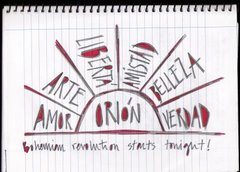


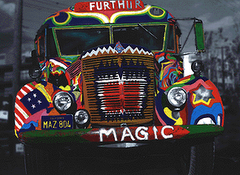
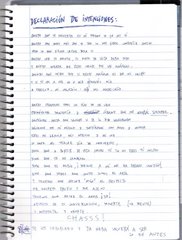
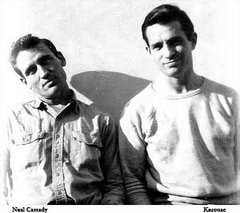

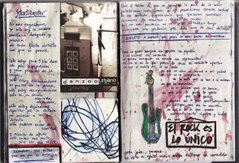
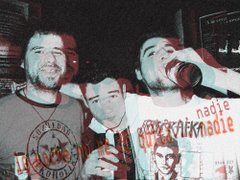

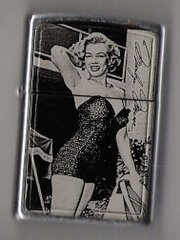
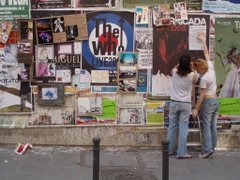
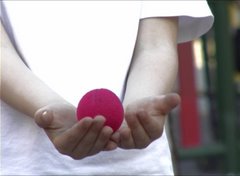


2 comentarios:
I can not be more impressive
well, maybe I can
but I´ll have to wait till you die of pleasure-in-art
------ our picture on the sun is the savecreen of the month,
me estoy comiendo uno de esos pepinillos dulces alemanes
y ayer aniversario de co-razones
(en serio ,aniversario, esa palabra ahora tiene más significado) -como todas las que nos da por tocar-
me cosnta que deputamadre
o al menos lo estamos intentando
con responsabilidad y todo
y esque no queremos dejar de fumar. -hay una canción que se llama patty-in-arms
esto ya es un hecho.
arturo tiene mi pistola de mentira, pero que pesa y si te cae el perdigón te pica.
preparación de collage para la intro de un dvd. este finde lo grabo. hoy llueve, claro.
ni jodida idea tía, pero que llegue, que ya va a llegar.
en serio, solo queremos estar a gusto.joder.a gusto.joder.
más teatro, menos barato, yo no puedo mirar inside impresionismo porque hay tantas preguntas...
muchos palos y frentes abiertos,
a ver en cual acabamos de empezar...
yo,
te quiero
Gracias intiresnuyu iformatsiyu
Publicar un comentario